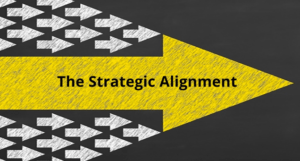As the year progresses and the initial drive of January begins to wane, many leaders, entrepreneurs, and high achievers find themselves grappling with a familiar challenge: maintaining momentum.
The busyness of business, unexpected hurdles, and evolving priorities can leave even the most focused individuals feeling out of sync with their original goals. This is where the power of recalibration comes into play.
Mid-year offers a pivotal opportunity to pause, reflect, and realign. Much like a car in need of a tune-up during a long journey, high performers must take time to reassess both their vision and energy levels to ensure they are on track to achieve success in the latter half of the year. Recalibration is not about starting over—it’s about fine-tuning the path to ensure that your efforts are aligned with your purpose and that your energy is being optimally utilized.
In a world that demands constant adaptability, recalibrating your strategy and refocusing your personal well-being can transform how you lead and operate. By realigning your vision with clear, actionable steps and recharging your energy, you can reignite your drive to finish the year with purpose and peak performance. This article will explore the key elements of recalibration, offering insights and strategies to help you make the most of the months ahead.
The Need for Vision Alignment
At the heart of every successful leader’s journey is a clear and compelling vision. This vision acts as a guiding star, keeping teams, strategies, and personal goals focused on a common destination.
But as the year unfolds, external shifts—be it in market dynamics, industry changes, or personal life events—can cause this vision to blur. What seemed perfectly aligned in January might now feel disconnected or out of reach. This is why mid-year vision alignment is essential.

Vision alignment is more than just ensuring that the company’s goals are clear; it’s about making sure that every action, decision, and resource is focused on moving toward that vision. When leaders recalibrate their vision mid-year, they can regain clarity on long-term objectives and ensure that short-term strategies are still contributing to the bigger picture.
A misaligned vision can lead to wasted resources, unproductive efforts, and even burnout among teams. Without a clear sense of direction, employees may become disillusioned, confused, or disengaged, focusing on tasks that don’t contribute to the broader organizational mission. Similarly, leaders may find themselves spending time on initiatives that seem urgent but don’t align with their long-term goals.
Mid-year or quarterly is an opportune time to step back and ask yourself: Does my current path still align with my ultimate vision? This reassessment involves not only looking at where your business or team stands in relation to its goals but also evaluating whether the original vision remains relevant in light of any new opportunities or challenges that have arisen.
Recalibrating Personal Energy
Just as a car needs fuel to keep running, leaders need energy to perform at their best. However, it’s not just about physical stamina; it’s about mental, emotional, and even spiritual energy.
When personal energy is mismanaged, it can lead to burnout, decision fatigue, and a decrease in overall effectiveness. That’s why mid-year recalibration is not only about realigning goals and strategies but also about managing your personal energy to ensure sustained peak performance.
Think of personal energy as the engine driving your leadership. If that engine isn’t well-maintained—if it’s running on empty or misfiring—it can impact every part of your leadership, from decision-making to creativity and motivation. Recalibrating personal energy ensures that you’re running at optimal levels, not just surviving but thriving.

Leaders often face an overwhelming number of demands. From managing teams and making high-stakes decisions to staying ahead of market trends, the sheer weight of these responsibilities can be exhausting. Personal energy directly influences how well you handle these tasks.
When your energy levels are depleted, even routine decisions can feel burdensome, and innovative thinking becomes a struggle. On the other hand, when your energy is balanced, you have the mental clarity, emotional resilience, and physical stamina to tackle challenges head-on.
Aligning Strategy with Purpose
Having a clear and aligned vision is essential, and managing personal energy ensures that leaders remain effective. But to truly achieve peak performance, vision and energy must be anchored in a well-aligned strategy—one that is not only action-driven but also deeply connected to a meaningful purpose. Without a sense of purpose behind your strategic efforts, even the most well-designed plans can feel hollow and unsustainable.
Aligning strategy with purpose ensures that your goals are not just about short-term wins but are rooted in a broader mission that drives long-term success. Purpose gives strategy its meaning, and strategy provides the roadmap for realizing that purpose.
When these two elements are in sync, leaders can inspire greater engagement, foster innovation, and maintain resilience through challenges. More importantly, a strategy driven by purpose becomes a catalyst for sustained growth, not just for the organization but for the individuals within it.
Steps to Align Strategy with Purpose
Reconnect with Your Core Purpose
Before aligning your strategy, you need to have a clear understanding of your organization’s purpose. Revisit your mission statement and ask yourself whether it still resonates with the current market conditions and the needs of your customers.
Are you still focused on making the impact you initially set out to make? If the answer is yes, then reinforce that purpose across your strategy. If not, it may be time to redefine your purpose to ensure it’s relevant to both your team and your broader market.
Engage your leadership team in this conversation. It’s important that everyone understands and is committed to the purpose of the organization. If your purpose is centered on solving a particular problem, improving lives, or creating value in a specific area, make sure your strategy reflects that.
Evaluate Strategic Initiatives Against Your Purpose
Once your purpose is clear, review your current strategic initiatives and ask whether they align with it. For example, if your company’s purpose is to create innovative solutions that improve customer experience, are your current initiatives really focused on innovation, or are they more about maintaining the status quo? This evaluation process helps ensure that your strategies are not just reactive to market pressures, but proactive in achieving your long-term purpose.
Ask critical questions: Does this initiative contribute to our core mission? Is this project aligned with our values? How does this decision move us closer to fulfilling our purpose? These questions will guide you in filtering out projects or efforts that may not be serving your bigger picture and redirecting focus to the ones that matter.
Ensure Purpose is Embedded in Team and Organizational Goals
It’s not enough for leadership to be aligned with the organization’s purpose. Every team member should understand how their work contributes to fulfilling that purpose. This means translating your broader mission into specific, measurable goals that reflect both the organization’s strategy and purpose.
For instance, if your company’s purpose is centered on sustainability, each department—whether marketing, operations, or HR—should have goals that directly or indirectly support that mission. Marketing might focus on promoting sustainability initiatives, while operations could prioritize eco-friendly practices in supply chains. Purpose-driven goals give employees a sense of meaning in their work, creating deeper engagement and ownership over outcomes.
Adapt to Changing Market Needs Without Losing Sight of Purpose
The business landscape is dynamic, and strategies often need to shift in response to changing market conditions, new competitors, or technological advancements. However, even when strategies evolve, your purpose should remain consistent. The purpose is your North Star—it should guide every adjustment, pivot, or innovation that your company undertakes.
Successful companies know how to innovate within the framework of their purpose. Consider how brands like Patagonia have stayed true to their environmental mission even as they’ve scaled globally. Their purpose has remained constant, while their strategies have adapted to new markets, technologies, and customer demands. This adaptability, anchored in purpose, ensures that the company remains relevant while maintaining its core identity.
- Communicate Purpose Through Every Strategy
One of the most important aspects of aligning strategy with purpose is communication. Purpose-driven strategy should be communicated clearly and consistently to all stakeholders—from employees to customers and even investors. Regularly remind your team how their work ties back to the organization’s mission. Celebrate wins that reflect your purpose and demonstrate how your strategic efforts are creating a positive impact.
When communicating externally, ensure that your brand’s purpose is evident in your messaging, product offerings, and customer interactions. Companies that lead with purpose not only foster loyalty among customers but also attract employees who are aligned with their values, contributing to a more engaged and productive workforce.
Are you ready for TRANSFORMATION?
Dzigbordi Kwaku-Dosoo is a Ghanaian multi-disciplinary Business Leader, Entrepreneur,
Consultant, Certified High-Performance Coach (CHPC™) and global Speaker.
She is the Founder and CEO of The DCG Consulting Group.
She is the trusted coach to top executives, managers, teams, and entrepreneurs helping
them reach their highest level of performance through the integration of technical skills
with human (soft)skills for personal development and professional growth, a recipe for
success she has perfected over the years.
Her coaching, seminars and training has helped many organizations and individuals to
transform their image and impact, elevate their engagement and establish networks
leading to improved and inspired teams, growth and productivity.










